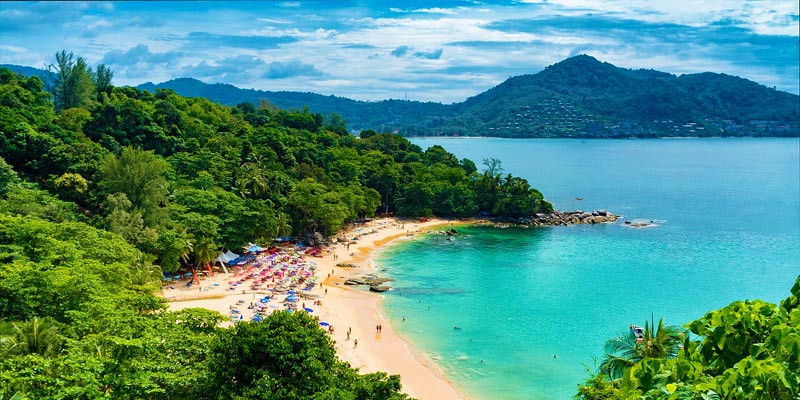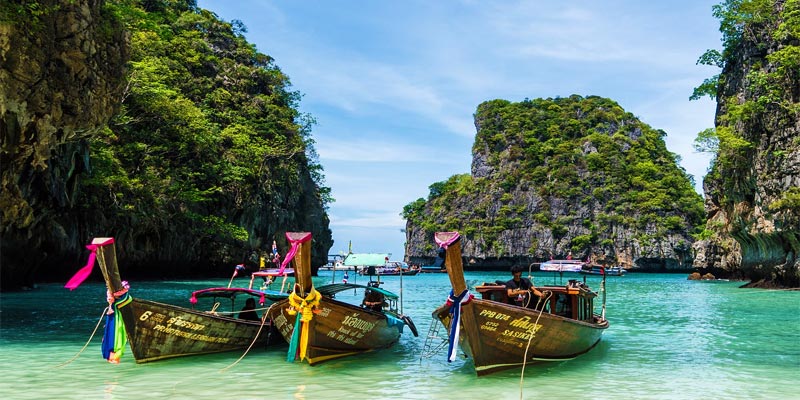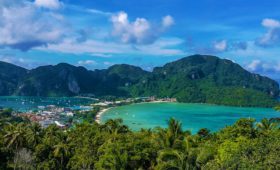Often lauded as the “Pearl of the Andaman,” Phuket, Thailand boasts stunning beaches and a vibrant nightlife; it has culturally rich attributes for which it earns renown. Yet many travelers who find themselves drawn to this tropical paradise also harbor one common concern: perceived high living costs and travel expenses.
This article delves into the factors driving relatively elevated prices in Phuket, seeking to demystify why this sought-after destination often carries an expensive perception.
Below are some of the reasons why Phuket is expensive.
1. Tourist Hotspot
Undoubtedly, Phuket attracts millions of visitors annually as one of Thailand’s most popular tourist destinations. The rising demand for accommodations, dining, and activities inevitably escalates prices.
Indeed, the sheer popularity of Phuket fuels competitiveness in its tourism industry, which is a factor that leads to heightened costs across all sectors.
2. High Season vs. Low Season
Distinct high and low seasons mark the island’s experience. The peak months, usually aligning with winter in the northern hemisphere, propel demand to skyrocket; this causes prices for flights, accommodations, and activities to surge.
Conversely, the low season may present more budget-friendly options; however, it carries an inherent risk: unpredictable weather – notably heavy rainfall.
3. Luxury Tourism
Positioning itself as a luxury travel destination, Phuket boasts an abundance of high-end resorts; upscale dining establishments punctuate the experience. Exclusive experiences cater to affluent travelers: this is not merely about accommodation or fine cuisine – it’s a lifestyle choice.
However–with its opulence and exclusivity–Phuket’s allure can also contribute towards perpetuating perceptions that mark it as costly–if not prohibitive—for most visitors.
4. Island Logistics
As an island, Phuket grapples with added logistical hurdles: it must import goods and materials. The costs of ferrying these supplies to the island – a reflection in everyday item prices – augment the overall living expenses; thus, contributing significantly to its elevated cost of life.

5. Infrastructure Development
To cater to its burgeoning tourism industry’s demands, Phuket undertook substantial infrastructure development. This included modern airports, road networks, and other facilities; however, such endeavors necessitate significant investments that might indirectly inflate the island’s overall service costs.
6. Land Ownership Regulations
Strict regulations on foreign land ownership in Thailand may impact the real estate cost; consequently, it may escalate the business expenses on the island. These stringent rules can directly influence accommodation and service prices.
7. Environmental Conservation Efforts
Proactively engaged in environmental conservation efforts, Phuket particularly addresses challenges such as coral bleaching and over-tourism.
However, these proactive measures might incur costs; subsequently influencing the prices of specific activities and services.
Conclusion
Phuket indeed maintains a reputation for its relative expense in numerous respects; however, we must acknowledge the island’s diverse range of offerings. Exploring areas beyond the popular tourist hubs allows travelers to discover accommodation options and experiences that cater to various budgets.
By comprehending the factors influencing perceived expenses, visitors can make informed decisions and truly savor Phuket’s unique charm and beauty. Phuket, whether one seeks luxury or a budget-friendly experience; remains an alluring destination–continuously captivating globetrotters with its universal charm.




